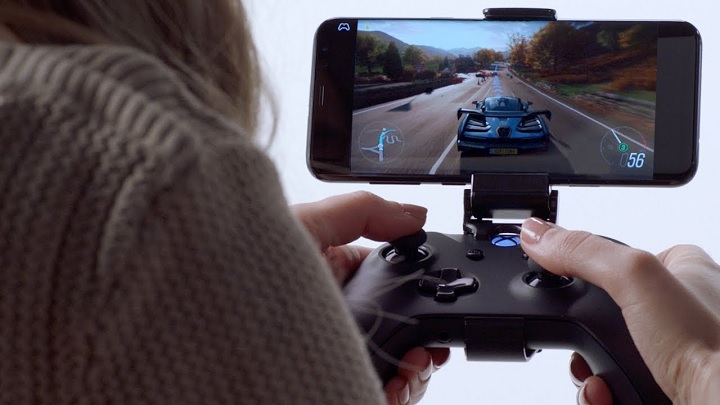Cloud gaming in practice. Google Stadia has Issues, but What About Microsoft's xCloud?

Cloud gaming in practice
So how does Microsoft's mobile streaming work and feel? I tested several games (including the mentioned Hitman, Devil May Cry 5, Halo 5 and Ori and the Blind Forest). And believe me, there were times when I almost thought I was playing on a regular console. The image is streamed in really high quality (of course, the screens of smartphones are small in comparison, which obscures many defects), and although there are some glitches (you could compare them to playing with vertical sync disabled, and stuttering YouTube videos), it's all pretty satisfactory. On top of that, all these drawback pale in comparison with the fact that we're actually talking about playing AAA games on a cheap smartphone during lunch break.
Sure, if you were to play the same game on xCloud and a console or PC and compare them side-by-side, you could see noticeable differences, mainly in the pace of gameplay, but this is not as conspicuous on the phone alone. And mind you, I'm the type of player who freaks out when the game drops below 60 fps. But this didn't really bother me on a smartphone, and unless you want to play on xCloud competitively, Microsoft's service is, for all intents and purposes, a portable current-generation console. I admit, playing faster, more challenging games seems a bit sluggish at times. And it's not as much about the framerate, as it is about the general pace. It looks a bit like the games were running at 75% the regular speed.

Gaming for everyone?
The idea at the heart of the project, which was discussed a lot during the XO 19, is accessibility. Microsoft understands this as giving as many players as possible access to games at minimal cost (and surprisingly, the cost is supposed to be minimized for the PLAYERS, nor the corporate). This mostly means people who do not have a console, or a PC, or even a controller. There are still many players around the world, who are only able to read about the games and watch gameplays on YouTube. Perhaps even you have friends who are interested in games, but – for various reasons, usually difficult to solve just like that – are unable to buy a console. xCloud is a service that's not as much intended be a taste of real gaming, as it is an actual substitute of it.
There are 2,6 billions gamers in the world and we are not going to sell 2,6 billions consoles so we think it’s all about reaching gamers and their devices where they are. – Catherine Gluckstein
Indeed, while console sales continue to grow, as do markets in general, there is a certain – substantial – group of people, who have so far been overlooked for various reasons. Kareem Choudhry put it this way:
If you look at the list of games... (supported by xCloud – ed. note) how many people in India do you think heard of these games? because they’re watching Twitch, they’re watching Mixter, they’re watching YouTube, but they have no ability to play them today.

So if you can't reach a region of the world with a physical product, it's worth taking a step back and realizing that the clouds – apart from airplanes – are full of petabytes of data. What product is easier to sell in an uncertain, shifty, and not necessarily rich region? A truck-full of gaming consoles, or an easy and accessible service, provided that the infrastructure (in this case, Internet) has already been established?
Will this service replace consoles? Perhaps, but not in the near future. The stage we have been witnessing for several years now, is preparation, experimentation, and the first attempts to introduce a product that should accompany, not replace, the core – and largely conservative – gaming market.
